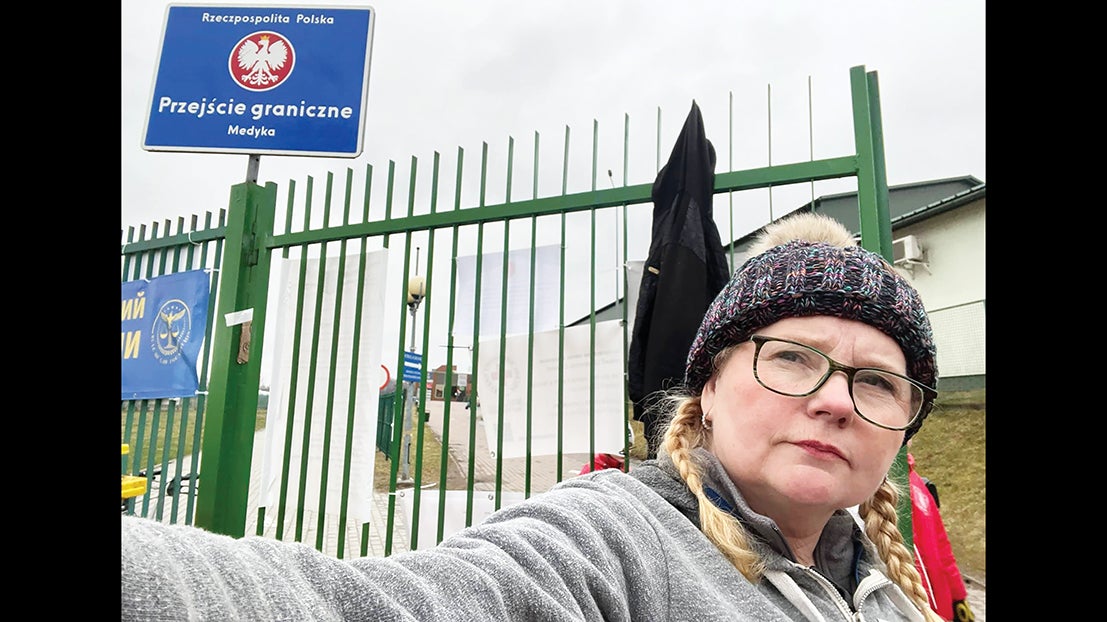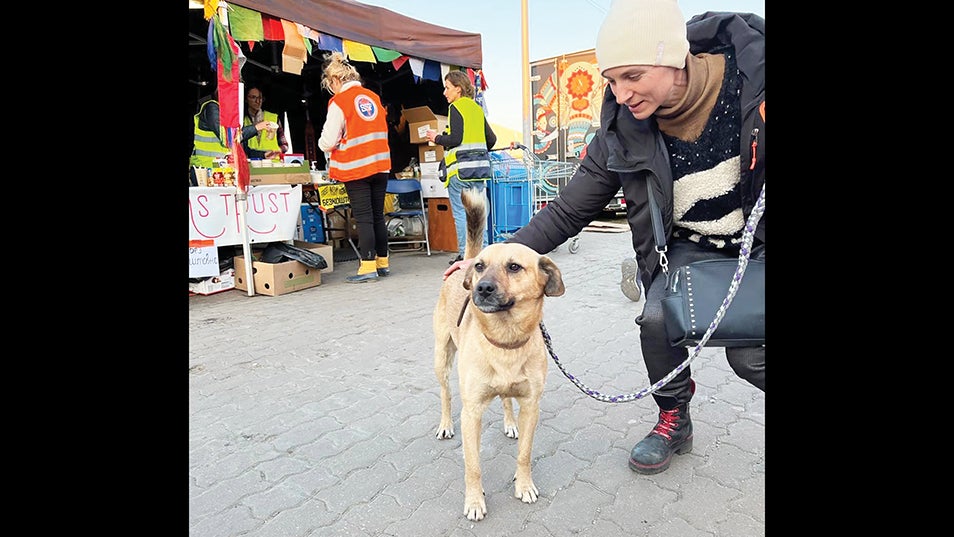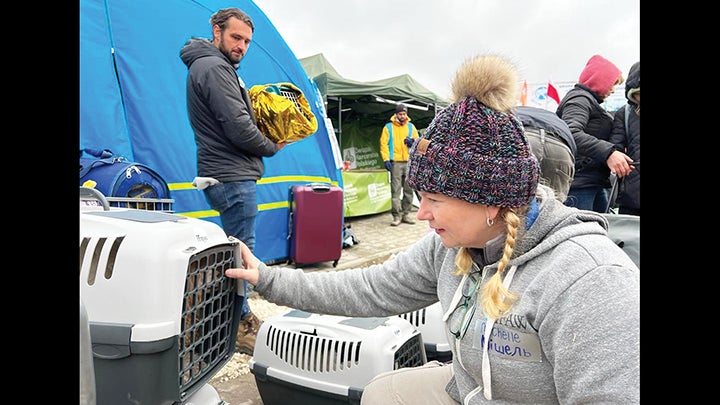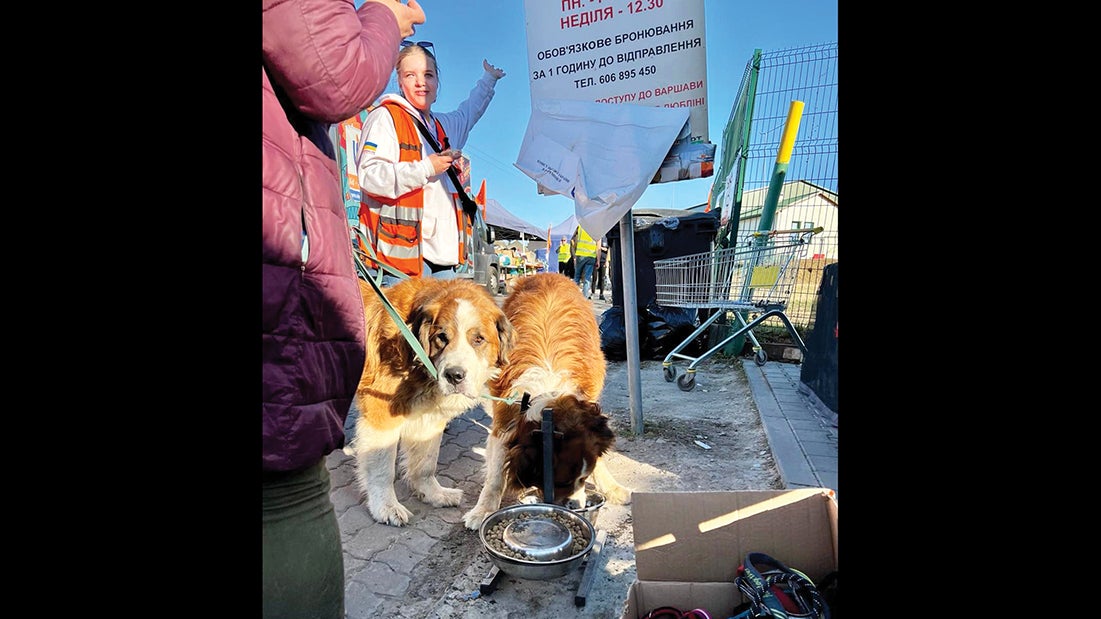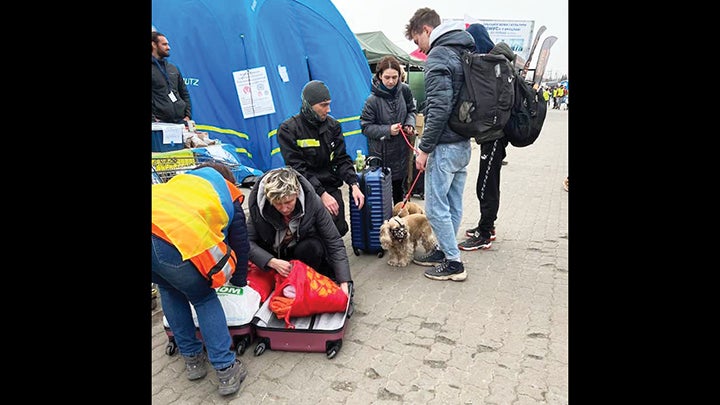Nothing is ‘too big or too far away to make a difference’ — Local volunteers work to rescue pets fleeing Ukraine
Published 8:00 am Tuesday, April 12, 2022
“When I saw the stuff happening on TV (with Russia and Ukraine), I thought we all wish like we could do something,” said Southwest Mississippi animal rescuer Michelle Ritchie Lombas. “But we think, ‘That’s too big, or too far away for somebody to make a difference.’”
But Lombas knew that wasn’t the case for her. A McComb resident whose family hails from Brookhaven, Lombas has worked and volunteered with animal welfare-related organizations for more than a decade, especially The International Fund for Animal Welfare.
Lombas knew that IFAW already had connections in the region with animal rescue organizations. When Lombas received an IFAW email asking for anyone who was available and willing to help in Eastern Europe if called upon, she did not hesitate.
Along with her husband Louis, the couple soon left to help in person with people crossing the border to flee Ukraine along with their pets.
“As need presented itself, we were able to go to Poland, and worked at the Ukraine-Poland border, where a major flow of refugees was coming in at that point,” Lombas said. “People were crossing by car, on foot, trying to make their way elsewhere to get to safety. We were specifically there to assist refugees with pets however we could.”
As other groups tended to the needs of human refugees, Lombas and her co-workers addressed the needs of their beloved animals.
“We were there 24/7 at a tent at the footpath as people crossed the border,” she said. “We had veterinarian staff, and saw animals that needed help. Some had hypothermia; some had not eaten for days and were dehydrated. Many of them were so frightened of sounds and movement.”
“You never know what they had experienced — both the animals and the people — and they may have been trying to get to the border crossing for days,” Lombas said.
In record-low temperatures, people were traveling through rain and snow with just what they could carry.
“It was amazing to see what they selected to tote … and their animals,” she said, her voice teeming with emotion. “They were trying to make a way to bring their animals with them. They would be in purses or makeshift carriers. I saw where someone had gotten two shopping (baskets) and bolted them together to carry a cat, and insulated coolers with holes cut in them to carry cats. They were all cold.”
Lombas and other volunteers focused on providing people with what they needed to go further in their travel, whether it was appropriate carriers, collars, leashes, harnesses, muzzles (required for larger animals) or blankets and coats.
“We see little cutesy coats for our animals here, but it was a necessary survival step on that end because of how cold it was,” Lombas said. “So we provided lots of cat sweaters and also assisted them with answering questions about vaccinations, etc. for their pets.”
Volunteers collected data and talked with people about where they had come from and what they had experienced. Some refugees shared photos of their homes or apartments, and then photos of their homes on fire, or rubble where their home used to be.
“A lot of them come across and they’re just trying to get to safety and not knowing where to go,” Lombas said. “And there are language barriers — people speaking Ukrainian, Polish, English and other languages from people from other countries. We were lucky enough to have interpreters, and some of them were refugees themselves, so it helped us and the people coming across. So we could identify with each other and what they were experiencing.”
“A lot of times we may not know the whole story and we don’t get it all in translation,” she said. “Just what we need to know about the animals.”
It was amazing to see the outpouring of everyone trying to help, Lombas said.
“The fact that everybody was trying to work together to provide some kind of compassion and comfort — a coat, or some shoes, or dog food, or whatever — trying to come up with a solution for somebody even beyond language barriers … I just find it to be amazing.”
Other Americans were there, along with people from all over the world, doing what they could to help, Lombas said. IFAW paid their expenses and made a way for them to go, but she thinks she would have found a way to go if given the opportunity, anyway.
“Who would have thought that a little girl from Mississippi who loved helping animals as she grew up could provide relief for someone leaving a war-torn country while the world was watching?” she mused.
“The thing that I have always wanted is for people to see that you’re not powerless, helpless or hopeless,” Lombas said. “You can do something, even if it’s small. You’ll be amazed over time what you can accomplish, and nobody needs to feel that something is too big or too far away for them to make a difference.”


